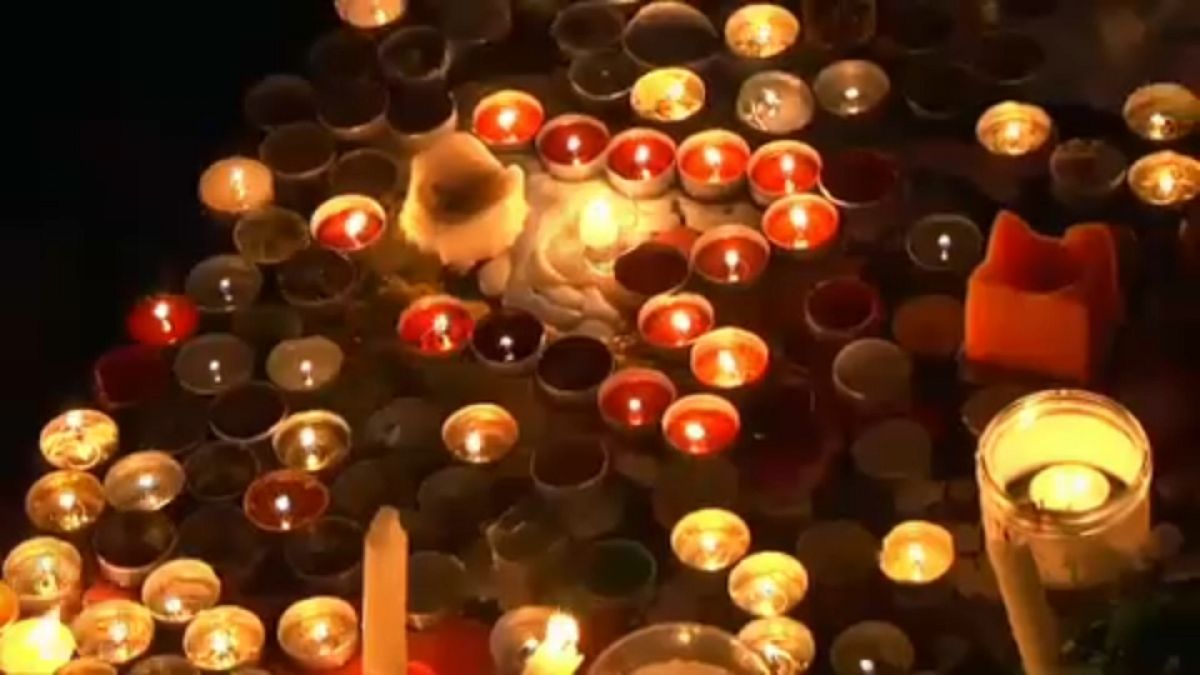The relatives of those who died in the attacks in Paris and in Brussels have been left with one main question - why?
The relatives of those who died in the attacks in Paris and in Brussels have been left with one main question - why?
Katerina Viktorsson's mother was visiting her from Sweden. She died in the airport departures hall.
"I have already suffered enough, and I am still suffering because of it. For me, thinking about Salah Abdeslam just adds to the pain. I don't even want to allow thoughts about him into my head. For me, he's really not worth it," she told Euronews.
Philippe Vansteenkiste lost his sister, Fabienne in the Brussels attacks. He set up an association in her memory.
"It is important for us to understand everything that happened between the 13th of November 2015 in Paris and the 22nd of March in Brussels. It looks like it was the same cell. We need to see the whole picture."
Keeping the memory of her daughter Chloe alive is also vital for Elisabeth Boissinot.
"I am terrified that we forget them ....they died while they were enjoying the end of the week, they were having a drink, they were in good spirits. We are not in a state of war. I am so afraid that we forget them, my Chloe as well, that I want to tell people not to forget and I realise that, in fact, you can continue to live even with immense pain."
Salah Abdeslam's arrest and trial in Belgium - the timeline
By the time of the gun battle in Brussels, Abdeslam had been hiding out in the Belgian capital for four months. He fled Paris on the night of the attacks in 2015.
His lawyers do not dispute Abdeslam was in Paris during the attacks. He then relied on a network of acquaintances to evade police back in Belgium.
Prosecutors in France think he helped organise the attacks, ferry former fighters from Syria around Europe and would have died as well if his suicide belt had not failed to detonate.
A group of French and Belgian officers came under a hail of gunfire while checking an address in the Forest suburb of Brussels. Four were wounded.
There was a three-hour siege. Marksmen killed a 35-year-old Algerian national called Mohammed Belkaid. Police found an arms cache and, crucially, Abdeslam's DNA.
He was finally arrested three days later at another apartment in the district of Molenbeek, close to his family home. His co-accused, 24-year-old Tunisian Sofien Ayari, was also detained.
Prosecutors say Abdeslam and Ayari fled the Forest flat while Belkaid held off police.
Prosecutors sought 20 years in prison for both, saying they took part in a joint operation to ambush the officers. Ayari's defence was that they did not open fire before fleeing.
What about the Paris attacks?
It is alleged Abdeslam fled Paris on the night of the attacks in November 2015. The attackers, who included his elder brother, killed 130 people in a series of suicide bombings and gun attacks.
A link with the Brussels attacks?
Abdeslam's lawyer challenged a court move to extend privileges to the trial for a group of victims and their relatives from the ISIL attacks in Brussels on March 22, 2016 which claimed the lives of 32 people.
Abdeslam was already in custody by then and has not been charged over that case. However, officials believe he was linked to the three bombers.
They say the cell brought forward the attacks because they feared Abdeslam would reveal their plans under interrogation.
